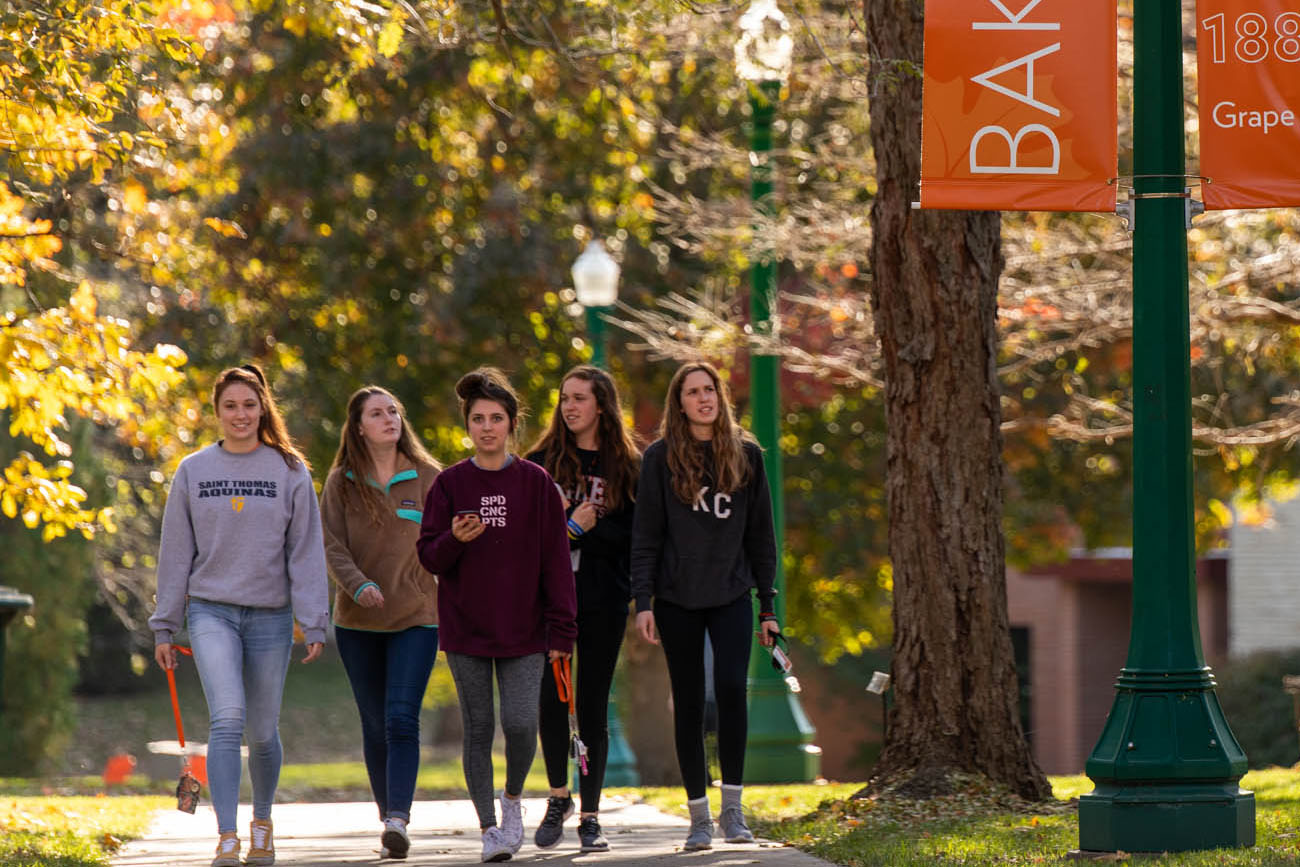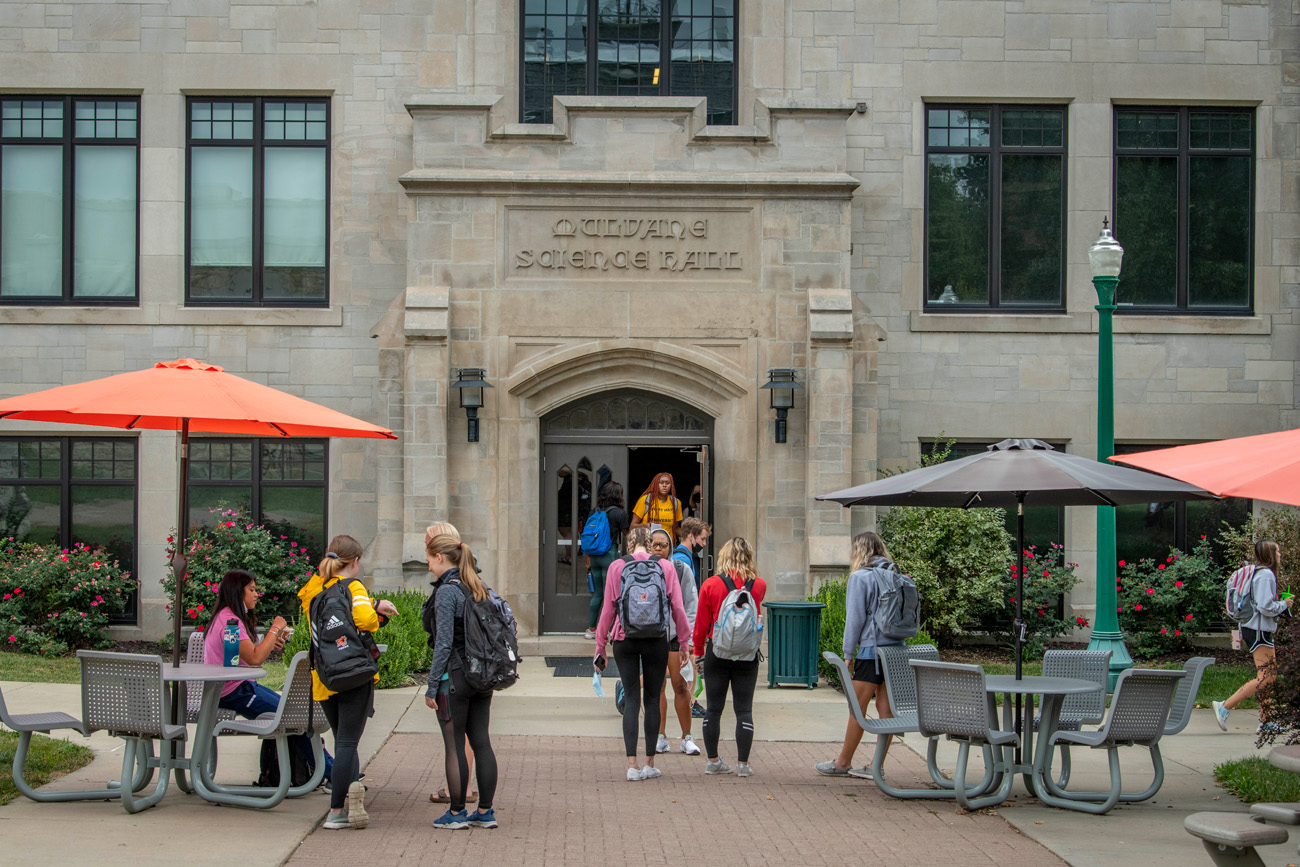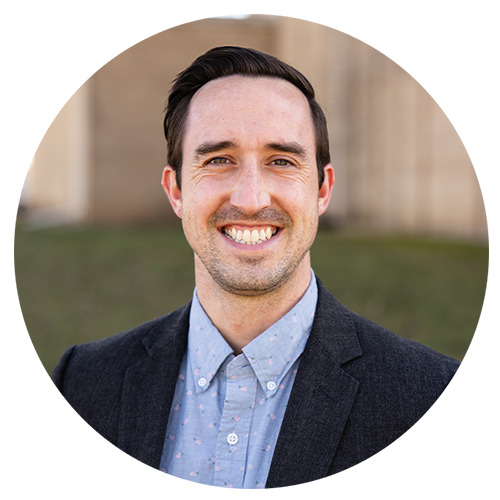
Brandi Pohlmeier
Department Assistant
History, Culture & Society
What is sociology?
About
Sociology is the study of human behavior, patterns of social relationships, and societal interactions in everyday life. At the core of sociology is the sociological perspective, or the mindset that our social backgrounds influence behaviors, attitudes, and opportunities in life.
Sociologists use research to examine these behaviors and how they relate to their social networks, families, work, and community. The research provides insight into social problems, crime, social justice, the economy, and how they intersect.
Why study sociology at Baker University?
As a sociology major at Baker University, you will work closely with an advisor to create a personalized undergraduate experience. The small class sizes allow you to dive deeply into different sociological theories to provide a foundation and gain insight into the social world around you.
Baker University has partnerships with various agencies in Topeka, Lawrence, and Kansas City to offer internships to gain real-world experience.

Career Opportunities for Sociology Majors
- Social worker
- Substance abuse counselor
- Police officer
- Human resource representative
- Victim advocate
- Teacher
- Case manager
- Counselor
- Criminal investigator
- Parole officer
Concentrations & Minors in Sociology at Baker University
Crime & Criminology Concentration
Students who develop an emphasis in crime and criminology explore every aspect of crime, the law, and the justice systems. Students will have opportunities to complete at least one internship during their course of study. Students are required to complete 9 credit hours from the following courses:
- Criminology
- Youth and Crime
- Cyber Deviance
- Violence
- Victimology
- Sociology of Deviant Behavior
- Law and Society
Students interested in the study of crime forensics are encouraged to complete a B.S. in sociology with a crime and criminology concentration and either a B.S. in biology following the molecular biology track or a B.S. in chemistry.
Students interested in forensic psychology are encouraged to complete a B.S. in sociology with a concentration in crime and criminology and a major in psychology.
Welfare & Social Well-Being Concentration
Courses in this area of emphasis are aimed at developing civic-minded students who want to help their community. Many of our grads go on to earn master’s degrees in social work or assume leadership positions in nonprofit organizations.
Students interested in these fields can develop an emphasis in welfare and social well-being by completing 9 credit hours from the following courses:
- Sociology of the Family
- Aging & Society
- Youth & Crime
- Disaster & Social Trauma
- Sociology of Medicine
- Opinion, Emotion & Identity
- Victimology
Many of these courses have a community service component. Students are also connected to internship opportunities as part of this emphasis.
Social Justice Minor
The study of social justice helps students understand how gender, race, ethnicity, social class, religion, sexuality, and other differences interact to create social division and conflict. Our students learn how to better resolve conflicts as actively and intentionally engaged members of society. The minor requires basic theoretical grounding as well as hands-on experience in the field. Requirements for the minor include two core courses, three electives, and a field experience course.
Goals of the Minor
- Explore social justice and the way gender, race and ethnicity, social class, and sexuality intersect
- Enable students to recognize and strengthen the relationship between theory and practice as it relates to social and community change
- Help students critique traditional disciplinary knowledge and analytical skills for understanding how knowledge is grounded in human experience.
- Further college and societal goals of diversity and their relationship to society
- Meet societal needs for building civility and respect between social groups
Scholarships for Sociology Majors
The Department of History, Culture, and Society gives these awards with financial prizes to be applied to the following year’s tuition:
- Mildred Hunt Riddle Departmental Recognition Scholarship for Social Sciences
- Mildred Hunt Riddle Departmental Recognition Scholarship for Philosophy and Religion
- Mildred Hunt Riddle Departmental Recognition Scholarship for History
- Dorothy J. and James F. Hilgenberg Scholarship
- Gilbert and Martha Jane Lewis Ferguson Scholarship
- Brune Memorial Scholarship
- Paul Dick Scholarship
- Warren E. and Marion Rhodes DeSpain Scholarship in Church Leadership
- Thomas G. Manson and Frances B. Manson Scholarship

Sociology Course Descriptions
SO 115 Principles of Sociology 3 hrs.
Intended as an introduction to the major themes of sociology, this course examines the basic concepts and methods of sociology, social structure, culture, socialization, the family, population, deviance, and social change. This course is required for Sociology majors.
SO 240 Social Problems 3 hrs.
In this course, we will approach social problems from a sociological perspective with an emphasis on using the sociological imagination. We will connect problems experienced by individuals to regional, global, and historical forces and stress the importance of evidence in forming opinions and policies that address social issues. We will discuss contemporary social problems and the complexities of violent conflict, poverty, climate change, human trafficking, and other issues. Prerequisite: SO115 or permission of the instructor.
SO 242 Society and the Individual 3 hrs.
An essential goal of sociology is to understand the dynamic relationship between social structures and individual values and behaviors. This course explores the nature of human interaction in its social context. Primary focus is given to the study of the relationship between norms, social roles, and society. The course also discusses the nature of social identities, social transactions, and the development of the self. How each of these applies to gender and sexuality, obedience and conformity, socialization, and groups will also be discussed. Prerequisite: SO 115 or permission of the instructor.
SO 243 Social Inequality 3 hrs.
This course is designed to introduce students to the study of social inequality and the dynamics of social status creation and differentiation. The focus is on the significance of gender, sexuality, race and ethnicity, and social class in social structures and social interactions. The course offers an exploration of social inequality, including a review of current sociological explanations of social inequality and conflict. Students will develop an empirical understanding of social differences, as well as discuss what role Marxism, feminism, and other approaches offer in developing a critique of social inequality. Prerequisite: SO 115 or permission of the instructor.
SO 274 Toolkit for Sociological Inquiry 3 hrs.
This course is designed to introduce students to the tools which social scientists use to conduct research on society and produce knowledge – in other words, how to be sociologists. This course will introduce the research process and ethical dilemmas faced by sociologists, as well as cover the essential procedures used to collect and analyze data. During this course, the students will learn how to carry out a scientific investigation: from the formulation of hypotheses, to the selection of appropriate methodology, and the steps involved in the implementation of a study, using both quantitative and qualitative methodologies. A major focus of this course is to enhance students’ ability to critically examine sociological research and also to provide exposure to different ways in which the acquired research skills can be utilized in conducting sociological research. Prerequisite: SO115 or permission of the instructor.
SO 305 Ritual, Festival & Other Social Alchemies 3 hrs.
Much like the alchemists of the medieval period, ritual and festival are mixtures of social things combined for a magical outcome! Systematically identifying these “social things” (Lemert 2012) is the task of Sociological investigation. How does ritual create collective transcendence? Investigations from sociology, anthropology, religious studies, art and music help answer that question. Students will first study the foundations of how sociology understands ritual as an aspect of social life. Then, students will explore the works of contemporary sociologists who have extended these classic treatments into interdisciplinary understandings of ritual and festival. Students will be engaged in field work and observations throughout the course, using the investigative tools of Sociology in field studies, survey research, and historical sociology. Prerequisite: Sophomore status.
SO 306 Unpacking the Isms 3 hrs.
This course is designed to provide the historical and contemporary aspects of race, class, gender, and sexuality from a sociological perspective. We will explore the various dimensions of identity, privilege, stratification, and oppression as well as racism, sexism, classism, heterosexism and the overall systemic nature of these and other “Isms.” Focusing on the intersection of race, class, gender, and sexual orientation, this course will examine how the confluence of these identities shape the lives of individuals, institutions, and society as a whole. In addition, we will examine theoretical perspectives that contribute to the production of social inequities. Prerequisite: Sophomore status.
SO 307 Technology & The Social Self 3 hrs.
This course examines the characteristics of technology as a “driver” of social change, especially for social structures and within culture. Specifically, the semester will explore how technology changes the self in various ways; identity, inequality, emotions, and various forms of deviance. Sociologists use a variety of analytical tools to examine social change and this course will introduce students to a few analytical methods. The goal is to identify patterns; how do we know self has been altered by technology, and how? The role and significance of computer mediated communication (CMC), the Internet, social media, and artificial intelligence will be studied. Prerequisite: Sophomore status.
SO 308 The Global Sex Trade 3 hrs.
The global sex trade is a complex phenomenon comprised of sex work (prostitution), sex trafficking, child marriage, mail order brides, pornography, exotic clubs, massage parlors, cage dancers, cyber/phone sex etc. The implications of the global sex trade will be explored in depth and will include social, economic, and political factors that contribute to the longevity of the industry. In addition, we will explore theoretical perspectives related to power and social inequities as they relate to the sex trade. We will also explore the different ways globalization has fueled the sex trade industry and implications of coercion, exploitation, risky sexual practices, and the subsequent violence associated with commercial sex. Prerequisite: Sophomore status.
SO 320 Theory in Sociology 3 hrs.
This course will explore the major theoretical traditions in sociology. Students will examine traditional frameworks, beginning with the works considered to be foundational to the discipline, as well as the works of contemporary theorists. This course is designed to help students learn how selected theoretical frameworks in sociology guide scientific and humanistic study of society and social phenomena. Prerequisite: Six credit hours in sociology or permission of the instructor.
SO 325 Criminology 3 hrs.
This course examines various types of criminal behavior including property crime, violent crime, political offenses, white-collar crime, and organized and professional crime. A study of the causes of criminal behavior and the social reaction to such behavior is also included. This course is normally considered as part of a sequence of courses developed for students interested in the study of crime and criminal justice. Prerequisite: Six credit hours in sociology or permission of the instructor.
SO 328 Sociology of the Family 3 hrs.
This course is based on the interaction of the family with its environment and the interaction among the members of the family. It focuses on marriage and family adjustments both from the personal and professional family service perspective. Students will complete a service learning project as part of their study of the family. Prerequisite: Six credit hours in sociology or permission of the instructor.
SO 329 Gender and Sexuality 3 hrs.
Sociologists distinguish between biological sex and socially constructed gender. This means that we are not born knowing how men and women are supposed to behave, but instead that we learn “appropriate” gender roles through socialization. The course explores various questions such as: How do we learn what is feminine and what is masculine, and what implications do these concepts have? What is the relationship between gender roles and gender inequality? With this base, we will be able to explore perspectives and theories on sexuality and discuss questions such as: How is sexuality determined? How is our understanding of sexuality shaped by gender norms? The course will also consider the relationship between gender and sexuality across a range of issues including: education, the family, work, crime/violence, media, public policy, and social movements. Prerequisite: Six credit hours in sociology or permission of the instructor.
SO 330 Race and Ethnicity 3 hrs.
The primary goal of this course is to understand how behavior and definitions of race and ethnicity are shaped by particular social processes. This course will examine race and ethnicity as constructs of social difference and understand the role these constructs play in creating social inequality, both of which impact the relationships and interactions of those considered in the majority with those considered in the minority. Topics of study include discrimination, racism, labor relations, education, violence, and social change. Prerequisite: Six credit hours in sociology or permission of the instructor.
SO 331 Social Class and Status 3 hrs.
This course will critically examine and analyze social class, poverty, and stratification, with an emphasis on inequality in American society. The leading theoretical, empirical, and methodological issues in stratification will be considered, and the causes and consequences of social inequality, stratification, and mobility will be examined. Particular attention will be given to the general stratification structure, the middle class, and the rich. Students will become aware of the nature and consequences of stratification and come to realize how stratification affects all aspects of social life. Prerequisite: Six credit hours in sociology or permission of the instructor.
SO 338 Aging and Society 3 hrs.
Societal age structure, age status and age-sex roles, correlates of aging, continuities and discontinuities during the life cycle, intergenerational relations, and social policy regarding aging and the aged are considered in this course. Students will complete a service learning project as part of their study of aging and society. Prerequisite: Six credit hours in sociology or permission of the instructor.
SO 344 Youth and Crime 3 hrs.
This course is designed to explore the nature and extent of criminal behavior by individuals under 18 years of age, and to differentiate this behavior from a variety of other forms of deviance. Students will be introduced to the nature and extent of delinquency in American society, and review classic theoretical explanations for why delinquency occurs. Various social contexts of delinquency are explored through selected social institutions and their relationship to delinquent behavior. The last half of the course is focused on understanding the unique, formalized system of “justice” developed in the United States in response to juvenile delinquency. Prerequisite: Six credit hours in sociology or permission of the instructor.
SO 345 Cyber Deviance 3 hrs.
This course will explore the ways in which Internet technology now organizes and presents opportunities for deviance in modern society. Students will explore the nature of Internet deviance from a normative and reactive perspective in order to discern the sociological dimensions of technologically-created deviant forms. Topics to be discussed include consumer fraud, hate groups and hate speech, pornography, cybersex, terrorism and threats, hacking, and identity theft. Students will also study policy responses to these deviant forms, reporting on the ways in which deviance on the Internet is subject to social control. The goal of the course is to apply a sociological framework to these aspects of deviance and study the role Internet technology plays in our current understanding of deviance in society. Prerequisite: Six credit hours in sociology or permission of the instructor.
SO 346 Criminal Justice 3 hrs.
The purpose of this course is to introduce students to the various processes used to prevent and control crime, as well as to examine the nature, extent, and implications of these processes on crime and American society. The bulk of this course will focus on explanations employed by sociologists to explain why and how the stages of the criminal justice system (police, courts, and corrections) handle crime and offenders. The course is divided into four sections, with each of the last three sections being organized around a major stage in the criminal justice system. Sections include Strategies, The Police, The Courts, and Corrections. Prerequisite: Six credit hours in sociology or permission of the instructor.
SO 351 Disasters & Social Trauma 3 hrs.
Sociology is concerned generally with social interaction, the relationship between individuals and social structures, and the emergence of social structures. Disasters be they natural or man-made, can change all of these things in very dramatic ways for society. This course begins by looking at the frequency, characteristics, and nature of disasters and social traumas including natural (pandemics, tornadoes, hurricanes, heat waves, etc) and man-made (chemical accidents, mass murder, etc). Interestingly, sociologists have studied disasters for many decades. The course studies how we can use the tools of sociology to better understand how disasters occur in stages, affect communities and individuals in these communities, and how social systems are changed as a result of a disaster or social trauma. The course also examines the systems put into place to prepare for disaster as well as respond to the aftermath of a community trauma. Prerequisite: Six credit hours in sociology or permission of the instructor.
SO 360 Methods of Teaching Sociology 3 hrs.
This course is designed to help student teachers at the secondary level to understand the different methods of instruction which are appropriate to the teaching of sociology. It examines strategies and resources commonly used in the discipline and provides an understanding of contemporary curriculum practices in secondary schools. Prerequisite: Six credit hours in sociology or permission of the instructor; ED 100 and 243; junior status recommended.
SO 363 Religion, Ritual, and Belief 3 hrs.
This course examines the major contributions of the social scientist to the study of religious institutions, the various forms and social functions of religion, the structure of religious behavior and organization, and the relationship between religious institutions and other social institutions. Prerequisite: Six credit hours in sociology or permission of the instructor. (Cross-listed as RE 363.)
SO 364 Culture and Society 3 hrs.
This course surveys the major themes and questions in the sociology of culture. This includes careful study of the classical treatment of culture found in the works by Marx, Weber, and Durkheim, along with an examination of the role that culture plays in creative, organizational, and technological production. Prerequisite: Six credit hours in sociology or permission of the instructor.
SO 372 Sociology of Medicine 3 hrs.
This course is an introduction to new and expanding fields of medical sociology: disease and the sick person, health practices and practitioners, health institutions, and the cost and organization of health services and medical attention. Prerequisite: Six credit hours in sociology or permission of the instructor.
SO 377 The Sociology of Deviant Behavior 3 hrs.
This course examines the definitions, theories, and behavioral systems associated with various types of deviant behavior in contemporary society. Among the forms of deviance studied are drinking behavior, drug use, mental illness, sexual deviance, and suicide. This is normally considered part of a sequence of courses designed for those interested in crime and criminal justice. Prerequisite: Six credit hours in sociology or permission of the instructor.
SO 378 Opinion, Emotion, and Identity 3 hrs.
This course explores the ways that people make sense of their social worlds. This exploration will include the study of cognitive processes such as perception, memory, and judgment while looking at important sociological problems. This study will include the examination of various social behaviors and institutions, such as: How do social stereotypes, collective identities, and urban legends evolve and proliferate? How do social outcomes, from presidential elections to traffic jams, depend on our beliefs and on our beliefs about others’ beliefs? Prerequisite: Six credit hours in sociology or permission of the instructor.
SO 380 Law and Society 3 hrs.
Law is a form of social control in many societies. This course will explore the nature of law and social control in America and will study law as a social institution using a variety of sociological perspectives. Topics addressed include the history of law and the relationship between law and culture, the various roles of actors in the legal system (lawyers, judges, witnesses), understanding aspects of law-abiding behavior, and the influence of judicial decisions on social issues. Students will participate in a mock trial or moot court as part of the course requirement. Prerequisite: Six credit hours in sociology or permission of the instructor.
SO 384 Public Policy Analysis 3 hrs.
This course focuses on skill development and mastery of social statistics—techniques that sociologists and other social scientists use to summarize numeric data obtained from censuses, surveys, and experiments. The topics include hypothesis testing for group differences in means (z test, t test), for association between two variables (correlation, chi square), and the basics of regression analysis. Students will conclude the semester with the opportunity to conduct original analysis on secondary data sets consistent with the skills necessary for policy analysis. Prerequisites: MA 221 and SO 274 or permission of the instructor.
SO 390 Violence 3 hrs.
One critical lesson from nearly a century of sociological and criminological analysis of violence is that social change drives the emergence and forms of the phenomenon. This course is designed to examine in detail two things. First, the course looks at the many forms of violence found in society: murder, sexual violence, hate crime, terrorism and others. We study the characteristics of each and how patterns of violence are important to the creation of various social controls. Second, the course looks at theories of violence. How do we explain the various forms of violence? Included in this exploration are contemporary sociological theories of violence including anomie, subcultures of violence, radicalization, and others. Students will engage in a number of case studies as part of their study of violence. Prerequisite: Six credit hours in sociology or permission of the instructor.
SO 410 Power, Politics, and Society 3 hrs.
Political sociology is the study of the relationships between society and politics. Students will become familiar with the conceptual ways in which sociologists study the relationship between social structures and social interactions and politics. Topics studied include power, elite formations, political movements, and political culture. The course will consider a number of accounts (qualitative, quantitative, historical, and comparative) of social life in order to uncover the political nature of society and human interaction. Emphasis is placed on student applications of these frameworks and the development of diverse approaches to understanding political processes. Prerequisite: Six credit hours in sociology or permission of the instructor. (Cross listed as PS 410.)
SO 425 Victimology 3 hrs.
In this course, we will survey the field of victimology. We will address the extent of victimization in the United States and globally. We will examine the dominant theoretical explanations for victimization and discuss the causes and consequences of victimization including direct consequences of victimization and vicarious victimization. We will examine victimization in a wide range of contexts and address emerging issues in the field including hate crimes, terrorism, and human trafficking. Prerequisite: Six credit hours in sociology or permission of the instructor.
SO 493 Senior Seminar in Sociology 3 hrs.
This is the capstone course for students who major in Sociology. Each student will select a topic that relates to his/her interest in sociology and complete a final project related to that topic. Each project will require the examination, analysis, and presentation of a research experience that explores questions based upon theory in sociology. The research experience will include a seminar paper, formal oral presentation, and evaluations by peers and program faculty. Prerequisites: Senior status or permission of the instructor.
Meet the Faculty

Dr. Tim Buzzell
Professor of Sociology
B.A., M.P.A. Drake University; Ph.D. Iowa State University
Expertise: Computer crime and Internet deviance, sociology of ritual and holidays, political sociology and extremist groups
Office: Parmenter Hall 16

Dr. Michelle Deming
Assistant Professor of Sociology
M.A. University of North Carolina in Wilmington; Ph.D. University of South Carolina; Graduate Certificate in Women’s and Gender Studies, University of South Carolina
Office: Parmenter Hall 23

Jeffrey D. Milton
Instructor of Sociology
B.S. Baker University, M.A. Friends University
Expertise: Spiritual formation, religious studies, sociology of the individual, sociology of meaning-making
Office: Parmenter Hall 13
